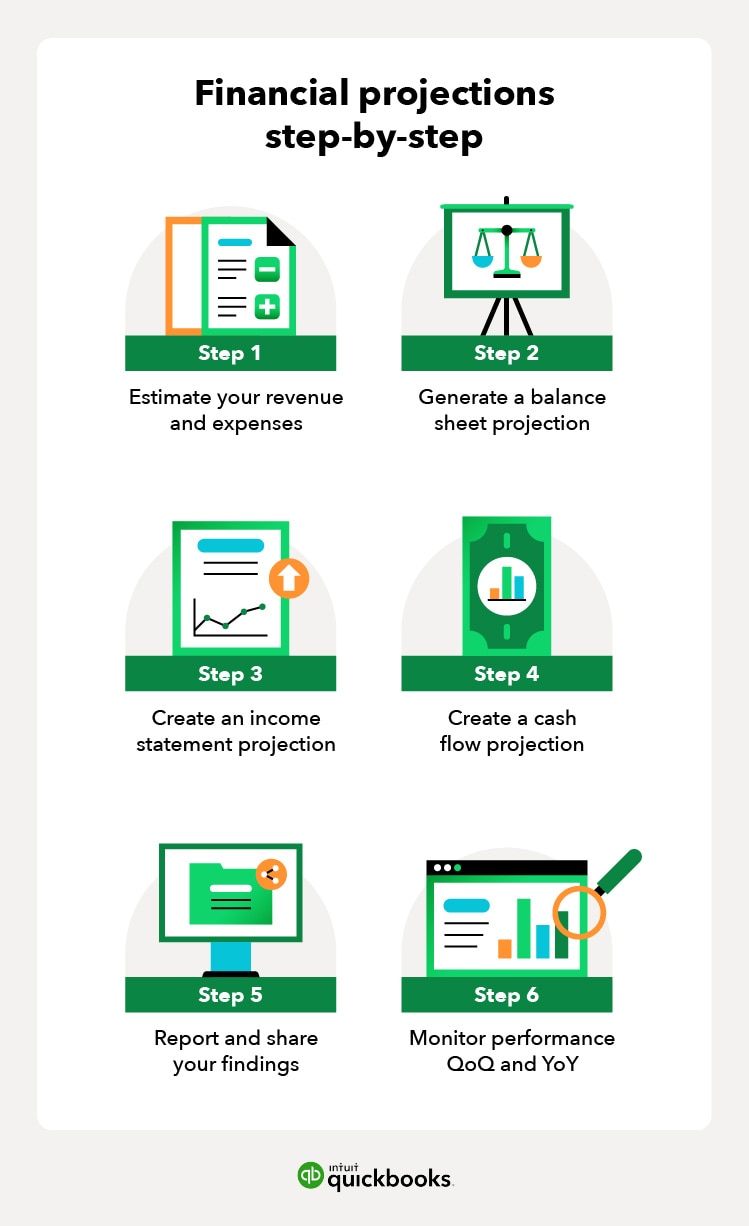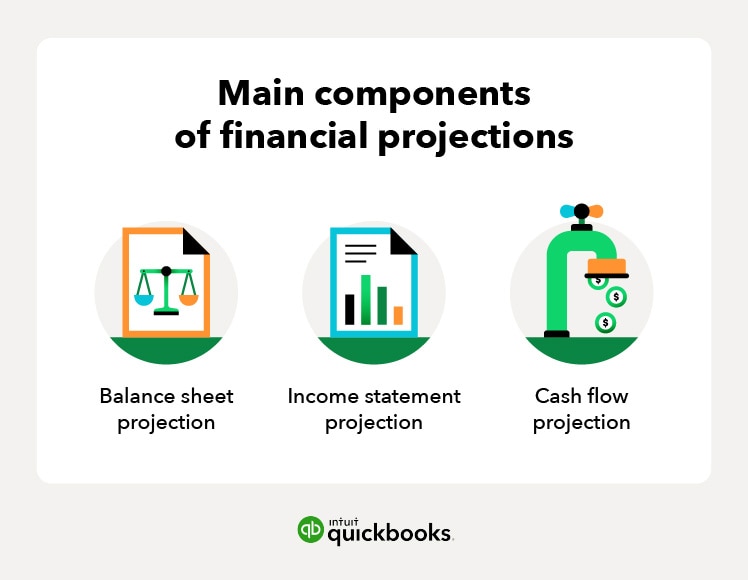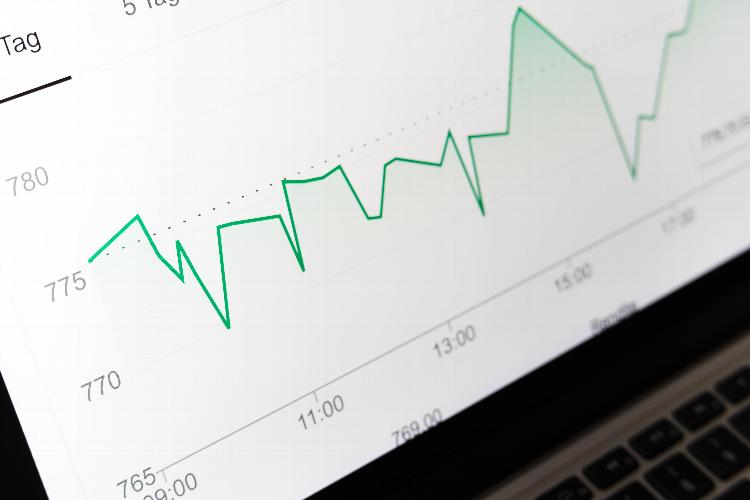To receive backing from external investors, venture capitalists or the bank, you must have robust and realistic financial projections within your business plan. Without direct experience or guidance, achieving an accurate projection can be a big ask when trying to quantify expenses and business growth. However, with the application of structure and the right guidance, it suddenly becomes a lot more achievable.
What is a financial projection?
Simply speaking, a financial projection is an educated prediction of expected future revenues and expenses incurred. The projection will include relevant information from internal and historical data, and a sample of predicted external market influence.
Generally, both short and mid-term financial projections are necessary – accounting for a monthly breakdown of year 1, through to year 3 for example.
Quite clearly, this is a crucial step in successfully obtaining external finance, but equally, it should also form the basis of your plans and outlook as the owner of the business. Not only does it demonstrate that you are serious, taking into consideration all variables that come with running a start-up or expanding a business, but it also provides the foundation for your internal business plan.
What is financial forecasting?
A financial forecast is similar to the above, except it relies on the future being the same as the present. For example, market conditions, consumer confidence, and demand for your product/service – if they were all to remain constant over the given period, a financial forecast is a reliable indicator of business performance.
Financial forecasting is used most effectively alongside a financial projection, in that you can now account for 1 more possible future. This gives a far broader, more representative analysis than one without the other.
Financial projections – a practical example.
Financial projections are used by businesses to account for the “what if” scenario. They are intended to allow for accurate contingency planning, therefore ensuring the future of the business.
For example, if you think that 6-8 months down the line there will be a housing market crash or an upturn in the sale of electric vehicles for example, you can include that as a risk factor in your financial planning. How would such an event impact your revenues? Some businesses will no doubt be heavily affected, whilst others quite the opposite. The key is relevance to your business.
Either way, creating a financial projection that includes these new market conditions will allow you to plan for that particular outcome. This places you in great stead to cope with the fluctuation, versus a competitor that hasn't planned adequately.
Financial projections and forecasting – 5 advantages.
We already know that optimising the attraction of external investment, determining the likelihood of success and planning for expenses and risk, all depend on good financial forecasting. But for those who aren't sold on the idea already, let's take a closer look at the 5 distinct benefits of robust financial planning and forecasting.
1) Obtaining external investment:
VCs, banks and anyone else in the business of funding start-ups and expansions all want access to detailed financial forecasts before handing over their cash. What does the risk/reward ratio look like for them? When can they expect to get their investment back? What will their return be?
2) Business viability:
If you can't reasonably foresee a sustainable and profitable future, you can either decide to hold off on launching the business altogether or improve your new business sales process. This is one of the major reasons a high percentage of start-ups fail – there is no action plan on how to sign up new customers, or how many are required to turn a profit.
3) Map out expenses:
Through accurate financial projections, you can effectively create your revenue timeline. During periods of reduced sales or cash flow, what level of additional investment or business finance will be required to bridge the gap?
4) Reduce waste:
Financial forecasting provides a holistic view of your business and quantifies the performance required from each department to allow for overall stability. You will very quickly identify those areas which are holding the operation back and then adjust where necessary. This is huge for operational efficiency.
5) Measure, track and adapt:
Businesses are living, breathing entities which produce varied outcomes depending on a multitude of factors. Financial forecasting allows you to adapt your future approach to business, based on the results you've gained in the past.
What to include in your financial projection.

Image source: https://quickbooks.intuit.com/
1) Income statement
If you're working on your financial projections before starting a business, this is where you'll want to focus the majority of your forecasting efforts. An income statement is comprised of:
- Revenue: the total cash you will earn from the sale of your product or service.
- Expenses: fixed and variable, make sure you account for all outgoings relevant to your business. Spend some time here considering all possible eventualities.
- Total income: Total revenue minus total expenses.
- Income tax: your tax liability, taken from your profits by your accountant and paid to the government.
- Net income: Total income minus income tax.
2) Cash flow projections
This one does what it says on the tin. Is the flow of cash into your business strong or weak? Positive or negative? Cashflows are an essential piece of the overall picture that a bank or investor will look at when ascertaining whether you are a risky investment. A cash flow is comprised of:
- Cash revenues: a realistic overview of sales for a specific period.
- Cash outgoings: an accurate overview of expenditure for the same period.
- Reconciliation: the difference between the incoming and outgoing cash for your business over the agreed period, plus any cash carried forward from the previous month/s.
3) Balance sheet
Presenting a picture of the net worth of a business at a particular time, a balance sheet is a snapshot of assets, liabilities and equity. A balance sheet is comprised of:
- Assets: physical objects of monetary value owned by your business, including everything from cash to office furniture, vehicles and real estate.
- Liabilities: any debts your business is liable for, including loan repayments, payroll, mortgages, and supplier payments.
- Equity: the difference between your business assets and liabilities, over a given period.
Important: the information presented in your balance sheet should reflect that of your income statement and cash flow projections. Any inconsistencies here could deter lending and investment – use this as a chance to double and triple-check your work.
Creating financial projections – get help or go it alone?

Image source: https://www.quickbooks.intuit.com
When creating financial projections - whether to secure finance, attract series funding, or ensure you have a bulletproof foundation on which to build your business – perhaps the most important aspect of all, is using reliable and accurate data from various sources. Ultimately, a projection is merely an estimate. However, a realistic estimate based on legitimate intelligence will go a long, long way versus a stab in the dark based on a gut feeling.
For this reason, unless you are already experienced in the field, we strongly recommend hiring an accountant to help you collate and present the information you'll need to obtain credit facilities and funding. Data gathering and presentation are critical in ensuring you get the right message across, in the right format to the lender, allowing them to make an informed decision in full confidence. The right accountant will have vast experience in preparing and presenting this information, taking an active approach to give you the best chances of success.
If you are preparing financial projections for your own business, by all means, play around with it and learn as you go. When it comes to crunch time though, and you're ready to launch your business, you need to have an accountant for ongoing help and support. They will play a crucial role in helping you to periodically review progress versus your plans, and ensuring your financial forecasts and projections are always reliable and accurate.

